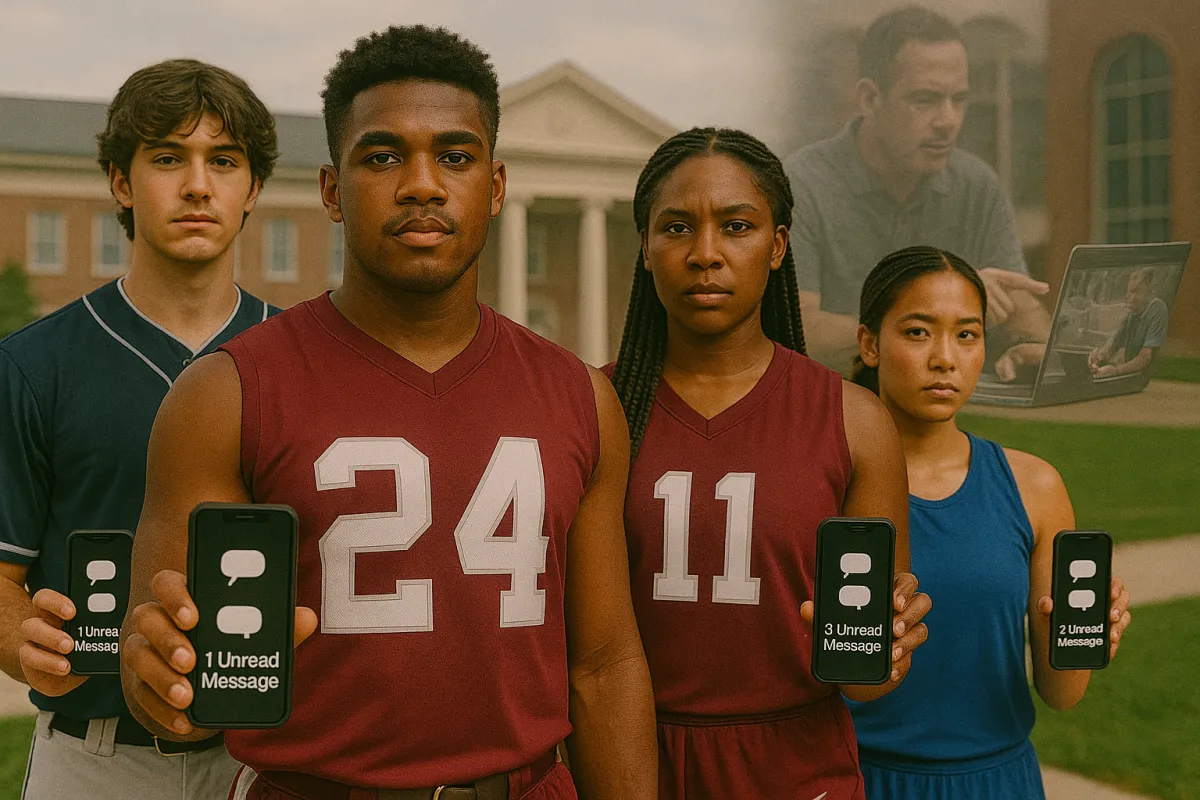
I Have Come to Bargain
I Have Come to Bargain: The Smart Way to Win Over College Coaches
When student-athletes set out on their recruiting journey, the process can feel like staring down Dormammu, a seemingly unbeatable opponent. Yet, just like Doctor Strange, results come not from brute force, but from showing patience, strategy, and a willingness to keep coming back to the bargaining table. Approaching college coaches with a smart, consistent, and strategic recruitingstrategy can make the difference between getting noticed and getting overlooked. Here is how to approach communications with coaches in a way that keeps the conversation alive and your name at the top of their minds.
Why Patience Pays Off in Recruiting
College recruiting is rarely instant. Coaches juggle hundreds of prospects, review video, and evaluate team needs. Some student-athletes expect immediate replies, but the reality is that patience often wins the race. By keeping your cool and following up consistently, you show maturity and understanding of the process. Coaches notice athletes who can wait without getting frustrated, as this reflects well on your ability to handle pressure both on and off the field.
Staying patient does not mean sitting idle. Take time to refine your highlight reel, improve your academic standing, and continue developing your skills. Use this waiting period to get better, so when a coach does respond, you have even more to show. Patience, when paired with ongoing personal growth, creates a powerful combination that coaches respect.
Communicate With Purpose and Consistency
Sending random emails or messages does not build trust or interest. Instead, consistent communication, checking in with updates, game results, and academic progress, shows you are genuinely interested in their program. Make each message count by sharing something meaningful, like a recent achievement, a new skill, or even a question about the team’s culture.
Consistency also demonstrates reliability. Coaches want athletes who follow through. Aim to reach out every few weeks with purposeful updates, not just generic greetings. Over time, this steady approach keeps you on a coach’s radar as a smart and prepared prospect.
Crafting a Strategic Approach to Coaches
Strategy matters when reaching out to coaches. Research each program before you contact them. Personalize your messages, mention something specific about the school or team that excites you. Avoid sending mass emails that look copied and pasted. Coaches appreciate athletes who put in the effort to learn about their program.
Incorporate smart recruitingstrategy by focusing on schools where your skills and academics align with their requirements. This increases your odds of real interest and meaningful responses. By being strategic, you waste less time and energy, and you show coaches you are serious about finding the right fit.
How to Handle Silence or Rejection
Every athlete faces silence or rejection at some stage. The key is not to take it personally. Use each no as an opportunity to refine your approach. Sometimes, silence means a coach is busy or the recruiting class is full. A smart move is to respectfully follow up once or twice, then shift focus to other opportunities if responses do not come.
Remember, being consistent and strategic even in the face of rejection demonstrates resilience. Coaches notice athletes who do not give up easily and who maintain professionalism throughout the process.
Building Your Personal Recruiting Brand
Think of yourself as a brand. Everything you post, share, or communicate with coaches builds that brand. Stay positive and professional on social media, as coaches often check these platforms. Share your progress, but also support teammates and show that you are a leader on and off the field.
Highlight your academic and athletic achievements.
Show leadership and teamwork through your posts.
Stay authentic, coaches value honesty and character.
Smart Tools and Resources for RecruitingStrategy
Leverage technology to streamline your recruitingstrategy. Use spreadsheets to track communication with coaches, deadlines, and visits. Platforms like Facilitate the Process offer valuable resources and connections. Stay organized so you never miss a follow-up or key deadline.
Consider reading articles like The Role Player Guide to Recruiting and FTP Information Portal for more targeted advice. The more informed you are, the more strategic your approach will be.
Balancing Persistence With Respect
Persistence is important, but so is respect. If a coach asks for space or signals limited interest, honor that boundary. Keep your communication polite and concise. If a program is not the right fit, move on to the next. Recruiting is about finding a mutual connection, not forcing your way in.
When you balance persistence with respect, you build a reputation as a student-athlete who understands the process and values the time of college coaches.
What Coaches Want to See in Communications
Coaches look for more than stats. They want athletes who communicate clearly, stay positive, and show a willingness to learn. Mention your goals, your academic interests, and your reasons for choosing their program. Ask thoughtful questions about the team’s values and expectations. This level of engagement signals that you are strategic about your future.
Be specific about your skills and what you bring to the team
Share your academic aspirations
Demonstrate commitment and reliability in every message
Keep Coming Back to the Table
Doctor Strange’s victory came from his willingness to keep showing up. In recruiting, showing up consistently, communicating with purpose, and being strategic in your approach can set you apart. Each attempt is a new opportunity to build trust and prove you are ready for the next level.
Recruiting is not about a single message or a one-time conversation. The athletes who come to bargain, who approach the process with patience, resilience, and a smart recruitingstrategy, are the ones who find the right fit and thrive.
Keep Bargaining, Keep Growing
The journey to college athletics is filled with moments that test your patience and resolve. Each time you reach out to a coach, refine your message, or handle a setback, you are building skills that will serve you for life. The process is about more than getting an offer; it is about becoming someone who is smart, consistent, and strategic in every challenge. So keep coming to the table, you never know which conversation will open the right door.





